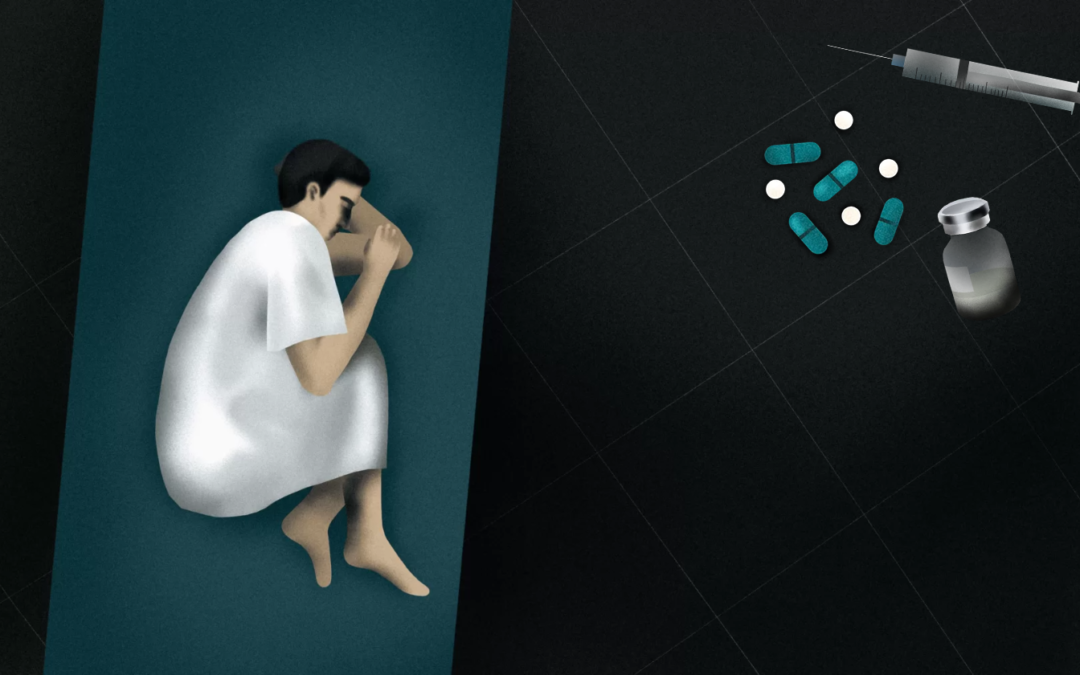Code 103. How prosecution under Article 120 in Uzbekistan really works
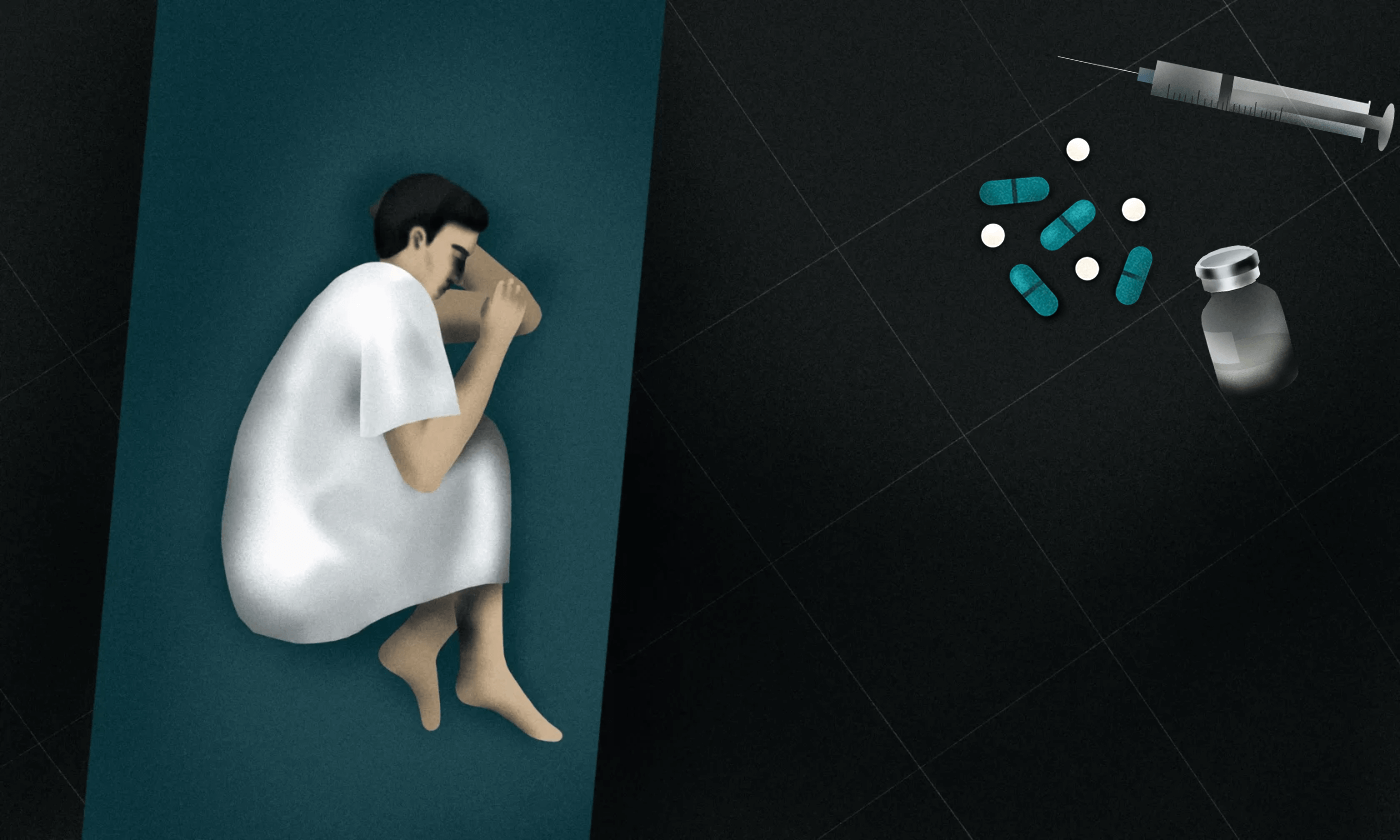
“Do you think I’m really going to jail?” asks Ruslan [name changed] at the end of our first half-hour Telegram call in May. During the conversation, he said he was 20 years old and combined study and service work in the service industry while living with his mother. The young man also revealed that he was diagnosed with HIV six months ago. The antiretroviral therapy, which he started immediately, is going well, the antibodies count in his blood is normal, and he is living a life of a healthy person.
The only abnormal thing is that after testing for HIV he was tricked into confirming his sexual orientation. The Republican AIDS Centre has passed this information to law enforcement, and now Ruslan faces up to three years in prison.
Code 103
How the AIDS centres share data with the law enforcement
In October, Ruslan went to the Republican AIDS Centre for routine HIV testing, aware of the increased risk of transmission in homosexual relations. He tested positive. The staff member who processed him and issued the test results said the treatment was allegedly different for heterosexual and homosexual men and if he had sex with men, he should inform his doctor about it to ensure he got the right therapy. Ruslan confided for fear of ineffective treatment.
This is how information about his HIV status and sexual orientation got from the medical facility to law enforcement agencies. Six months later, a new manipulation from the system followed. He received a call from the district police department which “invited” him to the police station, allegedly on charges of theft, which he did not commit. Ruslan obeyed.
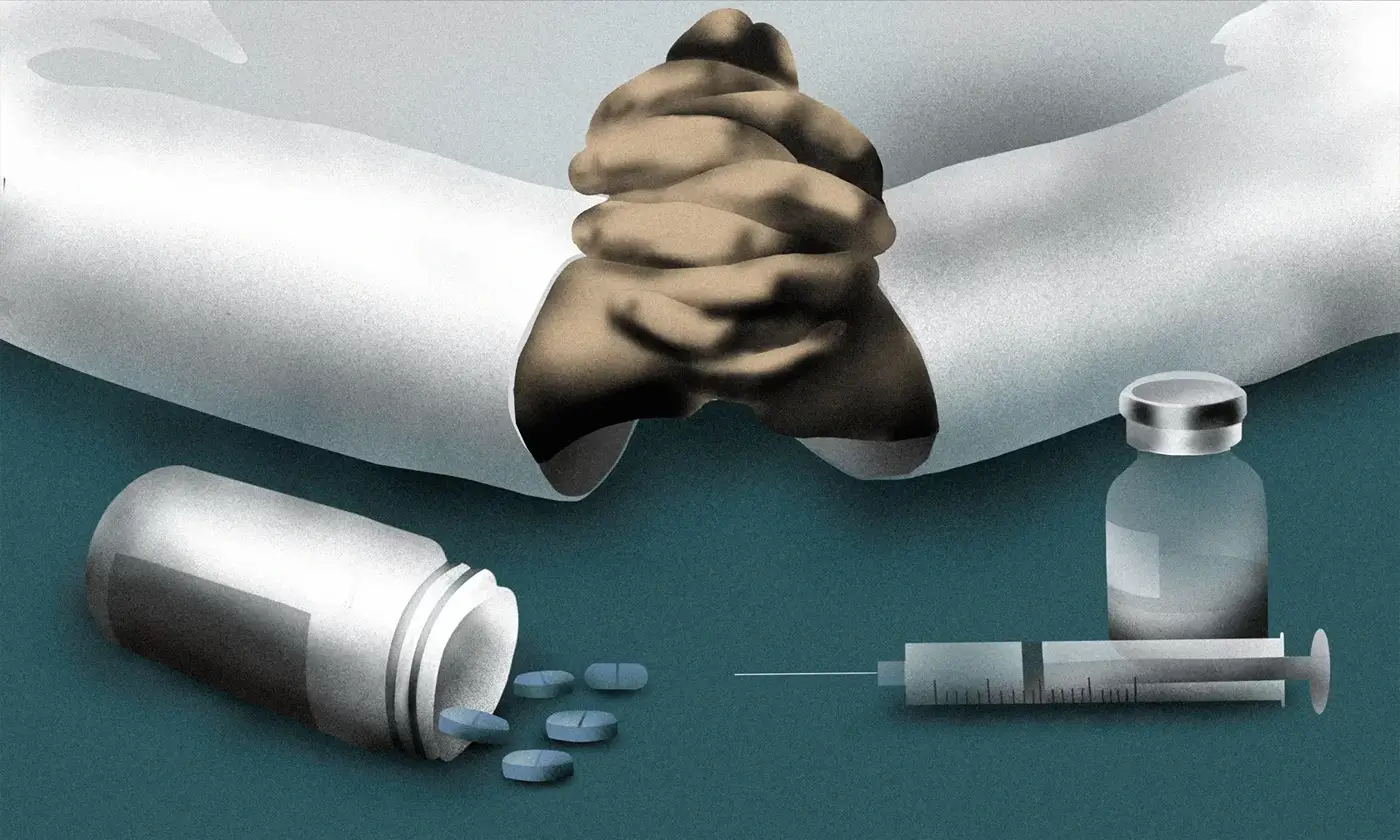
It turns out that a person has two options – to go to an AIDS centre and risk confidentiality but receive the necessary treatment if they are diagnosed with the disease or to not get tested and put themselves and their partners at risk.
Many people in these circumstances choose the latter to avoid the danger of persecution. This contributes to the spread of HIV, given that men who have sex with men are already at risk. Some 45,000 people with HIV officially live in Uzbekistan, and the region remains on the list of countries where the disease occurrence keeps growing. According to unofficial data, even African countries have overtaken Uzbekistan in terms of incidence rate.
An expert on the situation of the LGBTIQ+ community in Uzbekistan from Central Asia believes that although the procedure of taking a test and, in case of a positive result, getting registered is not the most pleasant, one should not risk the potential persecution under Article 113 of the Uzbek Criminal Code for spreading HIV infection:
«In case you are HIV-positive, it is still worth getting registered at the Republican AIDS Centre. The epidemiological commission set up to investigate the causes of infection will put pressure on the patient. There are two rules to follow when communicating with them. The first one is to behave in accordance with the gender identity indicated in your passport and leave mannerisms to your inner circle. The second is never to admit your orientation. It is impossible to calculate when exactly the infection occurred, you don’t have to remember everyone you slept with, all you have to do is say that you had sex with a woman a year or six months ago, or visited a dentist. You will be threatened with criminal liability for withholding information about the infection, but you have to choose the lesser of the two evils.
Getting tested for HIV and STIs is about self-care and social responsibility. As for anonymous HIV testing, one can go to an AIDS centre, and anonymous testing rooms do work, but if you get a positive result, the scenario will be slightly different. Those in Tashkent can go to Shymkent in Kazakhstan, there are organisations working specifically with the LGBTIQ+ people. They are trained and will provide counselling and anonymous testing. Their projects also provide access to pre-exposure therapy. Perhaps in the future, they will be able to share it with people from Uzbekistan. Let me remind you that in Uzbekistan, such therapy is problematic, even post-exposure therapy is not available to everyone».
Back in 2010, Anand Grover, at the time the UN Special Rapporteur on the right of everyone to enjoyment of the highest attainable standard of health, stated that “decriminalizing homosexuality, combined with efforts to combat discrimination against LGBT people, is an important tool to stop the spread of the virus”.
But the opposite is true in Uzbekistan – the authorities believe that having a criminal offence for “sodomy” helps stop HIV. “The decriminalisation of homosexuality has not been considered given the urgency of combating the spread of HIV”, the Uzbek government told the UN Committee on Economic, Social and Cultural Rights in 2020.
Blackmail, extortion and manipulation
How confessions are extorted
The investigation began in April. The first thing Ruslan was forced to do was to “turn in” his partners. The scheme works flawlessly: if you are cooperative, they promise you a lack of punishment or even a possibility to avoid imprisonment. Ruslan’s refusal to cooperate was followed by a threat of persecution under Article 113 for spreading HIV infection, which carries a maximum penalty of three more years in prison. Ruslan only talked about one partner he suspected of infecting – 32-year-old Zair. The man was found and it turned out he had known about his status for six years. He was charged under Articles 120 and 113; Ruslan was charged only under Article 120 and was promised that it was a pure formality.
According to Ruslan, he decided to cooperate with the investigation from the very beginning and did not conceal any details. The investigator said that he would have let Ruslan go, but that it was their duty to open a criminal case. However, he promised to find an easy solution to the situation, and the main thing was not to hide anything important. Ruslan said that, to the last minute, he thought that everything would turn out all right because he had no idea how such cases actually work. He signed a confession.
The expert on the situation of LGBTIQ+ people in Uzbekistan believes that any act of coming out and disclosure of one’s sexual orientation is a mistake:
“No matter how much we talk about human rights, about the right to self-expression, in a state that has Article 120 introduced which is perceived in society as a ban on the LGBTIQ+ identity and any manifestation thereof, it is impossible.
Another thing young people fall for is trust. Don’t trust law enforcement or medical staff unless you are referred to them by friendly professionals, don’t trust legally registered human rights or service organisations. None of them aims to protect your rights, the state simply won’t allow it. Search for LGBT organisations from neighbouring countries who can provide support and advice. They, unlike Uzbek organisations, can work openly and help the LGBTIQ+ community”.
During the investigation, the young man did not receive a single summons – all notices to appear in the police department were made by phone. His Telegram correspondence was read and his phone was tapped – it was even demonstrated in action by calling him right at the police station and letting him listen to the entire call from the computer in the next room. Afterwards, he had to buy a new phone on credit. During the investigation, Ruslan and Zair were also detained in a cold cell for 24 hours. Zair prayed non-stop and could not believe what was going on. The impersonal state lawyer, according to Ruslan, did nothing – he only advised him to cooperate with the investigation.
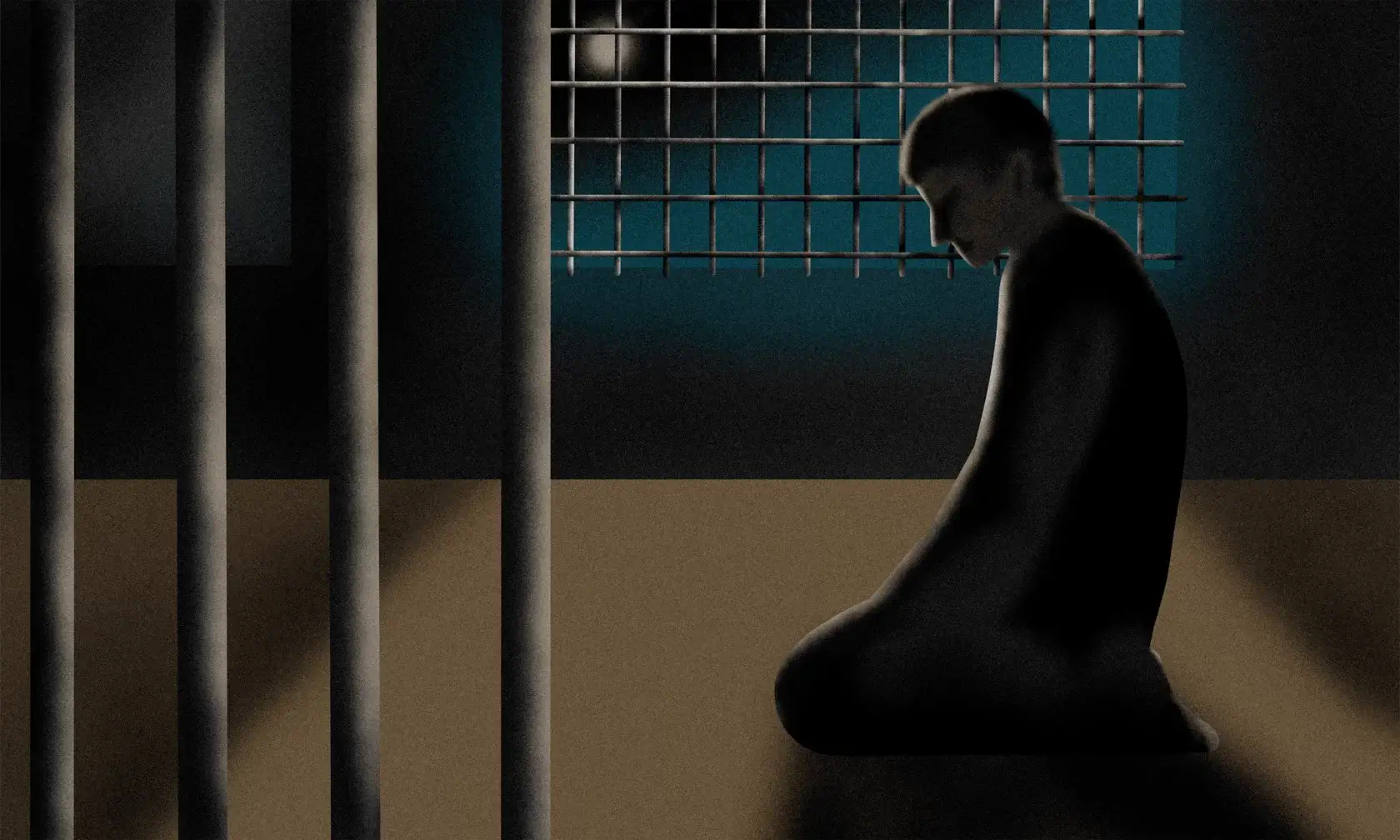
The report is available here.
Anal examination as a form of torture
and other common practices in Article 120 cases
Meanwhile, back in 2017, the World Medical Association adopted a resolution condemning the use of forced anal examinations as gay sex evidence and declared the practice “unscientific”, “futile” and “a form of torture or cruel, inhuman and degrading treatment”.
The organisation is a kind of medical parliament, representing doctors from around the world that was established to build consensus on quality standards for medical ethics and professional competence. At the moment, it has some 9 million members.
The IPHR has approached Akmal Saidov, chairman of the National Centre for Human Rights, about stopping the practice of anal examinations. The Centre did not respond to arguments that the practice was unacceptable and said that in Uzbekistan “forensic medical reports only refer to a possible sexual intercourse and do not mention the word ‘sodomy’. It is for the court to decide on this matter”.
Trial
What penalties do people convicted under Article 120 receive?
Finding a lawyer who would agree to defend the accused under Article 120 in court is extremely hard. Almost no one takes on such cases, and you can’t rely on the help of a public defender. Moreover, it becomes dangerous to look for a lawyer openly – you have to tell every candidate about your story. “I even tried to write to a lawyer who had a blog on TikTok because he seemed modern and understanding”, the young man said.
Those lawyers who can be found through activists and acquaintances cost money. In Ruslan’s case, the amount was 3 million soms (275 euros) – a large part of his monthly salary in a supermarket. This money was enough for the lawyer to familiarise herself with the case file and attend two hearings. But she got involved too late, and the defence line was poorly worked out – according to the young man, the lawyer was sure that there would be no real sentence and advised him not to worry. The prosecutor asked for three years in prison. The defence provided multiple references from the workplace and university.
But no miracle happened – Ruslan was sentenced to 1.5 years of imprisonment in a penal settlement.
The other defendant, who received a longer sentence, lodged an appeal. Ruslan will now remain in Tashkent pre-trial detention centre until a new trial. “He was first put in a cell with the murderers. They started banging on the door to have him taken away from them, otherwise, he would be attacked. Eventually, he was transferred to a cell with prisoners convicted under the same article”, says Ruslan’s mother, who was able to get one visit with her son in two months.
“He was first put in a cell with the murderers. They started banging on the door to have him taken away from them, otherwise, he would be attacked. Eventually, he was transferred to a cell with prisoners convicted under the same article”.
Those convicted under Article 120 receive different types of punishment, including various restrictions on their freedom, such as a ban on Internet access or leaving the house at night. But most of them still serve their sentences in general and high-security prisons, according to the National Centre for Human Rights response to the MPHR.
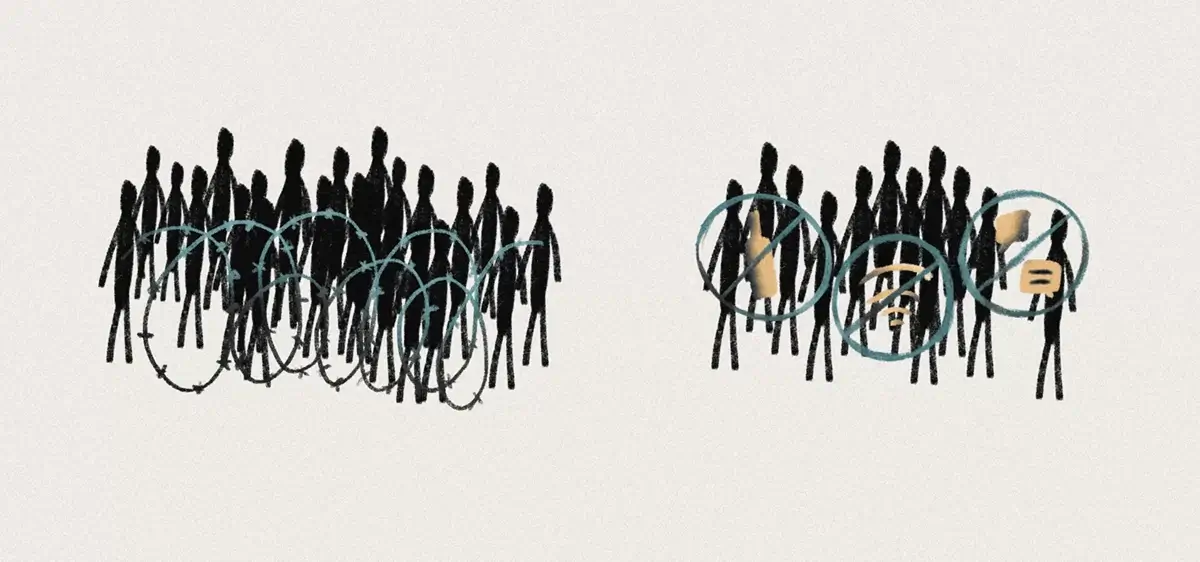
No support
Why LGBTIQ+ persons in Uzbekistan are left to their own resources
How come that despite the long-standing existence of Article 120, LGBTIQ+ persons continue to admit their orientation to law enforcement and medical personnel and are generally at risk, as if no one ever warned them about the danger?
Perhaps, one reason is the lack of a supportive community of like-minded people where information can be shared. Creating such communities in the Uzbek context is not just difficult, but dangerous.
When speaking of support groups, we are considering the context of rights, especially individual and political rights. The rights that the state, by ratifying the Covenant on Civil and Political Rights at the UN, has undertaken to enforce. Uzbekistan, as a member of the UN Human Rights Committee, should be at the forefront of guaranteeing these rights.
The state can claim that it does not have the money to implement these rights in relation to a particular social group, in our case, the LGBTIQ+ community, but under no circumstances does the state have the right to interfere and limit the freedom of people to exercise these rights or to help the state to protect them. In effect, it turns out that the government of Uzbekistan perceives all human rights activities in the country as anti-state activities.
In Uzbekistan, any endeavour related to the LGBTIQ+ community will be perceived as a direct challenge to the state. Naturally, law enforcement agencies keep an eye on everything, especially at times when the international community calls for the article to be abolished. Searches, intimidation, and psychological attacks are launched to suppress any activity aimed at the development, solidarity, and consolidation of the group.
In the international arena, the state says that it has created a network of NGOs that are independent of the government and provide support to all segments of the population, including vulnerable groups. But at the same time, the law on NGO activity provides that they are obliged to get permission, report on events and participants, and provide photos, videos, and participants lists to the Ministry of Justice. Under such conditions, one can only conclude that even if officially registered LGBTIQ+ NGOs do exist, they are completely subordinate to the state and unsafe.
– the expert on the LGBTIQ+ situation in Uzbekistan from Central Asia believes.
With no peer-to-peer support groups, help might be sought from other concerned people outside of the LGBTIQ+ community. But given the state’s strategy and open calls for violence by state and religious figures, none of these people would ever openly declare their position. For the queer community, finding such people is a challenge. What happens to those who help the LGBTIQ+ community is exemplified by the case of Miraziz Bazarov, a heterosexual man who had no connection to the community, but who publicly supported it.
The only possible option for the consolidation of members of this vulnerable group in Uzbekistan right now is a variety of Telegram groups. Their audience seems large at first glance, totalling tens of thousands of people. But compared to the country’s population of 35 million people, it is a drop in the ocean. Statistically, 4% of a population identifies as part of the queer community, which is about 1.5 million people in Uzbekistan. Telegram groups do not even reach 10% of that number. Besides, they are not safe:
“Telegram channels, online support groups, dating apps give an impression that there are no risks, no threats, because everything is simple, one is in a safe space. If the doorbell rings, you can turn off your computer, and no one will know anything. In these online groups, developing a sense of imagined safety and a “close” community, people post pictures, locations, and videos and let their guard down. But we should not underestimate government agencies that have unlimited resources for surveillance.
Although Pavel Durov said that he does not share Telegram encryption keys and therefore it is safe, radicals and law enforcers can always join the groups and apps and take pictures of people’s faces, record their voice and use it for blackmail in the best case scenario. Even if you didn’t have body contact, if you just chatted, even if you’re only 18 – your identity, which is unacceptable in Uzbekistan, is enough, and they will easily use their unspoken state-sanctioned permission to use violence. So it’s not worth talking about the safety of such groups, it’s safer to get acquainted in your own trusted environment”,
– the expert believes.
New Uzbekistan
with the old criminal articles
“The new Uzbekistan is a state that develops in strict accordance with universally recognized norms of democracy, human rights and freedoms, based on the principles of friendship and cooperation with the international community”, President Shavkat Mirziyoyev said in an interview with the Novy Uzbekistan newspaper.
“Criminalisation of sex between consenting adults of the same gender or the expression of one’s gender identity is a clear violation of human rights”, the UN Committee on Economic, Social and Cultural Rights said in General Comment No. 22 in May 2016.
Despite progress with human rights, real or perceived, in other areas, Article 120 and the LGBTIQ+ rights situation remains an eyesore for Uzbekistan.
International human rights law explicitly prohibits the criminalization of same-sex relationships between consenting adults, and in recent years, UN treaty bodies have called on Uzbekistan to abolish Article 120 of the Criminal Code, adopt comprehensive anti-discrimination legislation, effectively investigate information about torture and other forms of violence, bring perpetrators to justice, and combat social stigma, harassment, hate speech, discrimination and violence based on sexual orientation or gender identity.
Uzbekistan is currently drafting a new criminal code. The legislative proposal published in February 2021 still criminalises consensual sex between men. But until the new criminal code is adopted, there is still a window of opportunity for the Uzbek authorities to remove this clause from the text of the draft law and bring Uzbekistan closer to complying with its international human rights obligations.
This article was originally published here
Nothing beats good old email
For our monthly newsletter, we pick the most important news and analysis,
and add selected content and art from queer creators.
